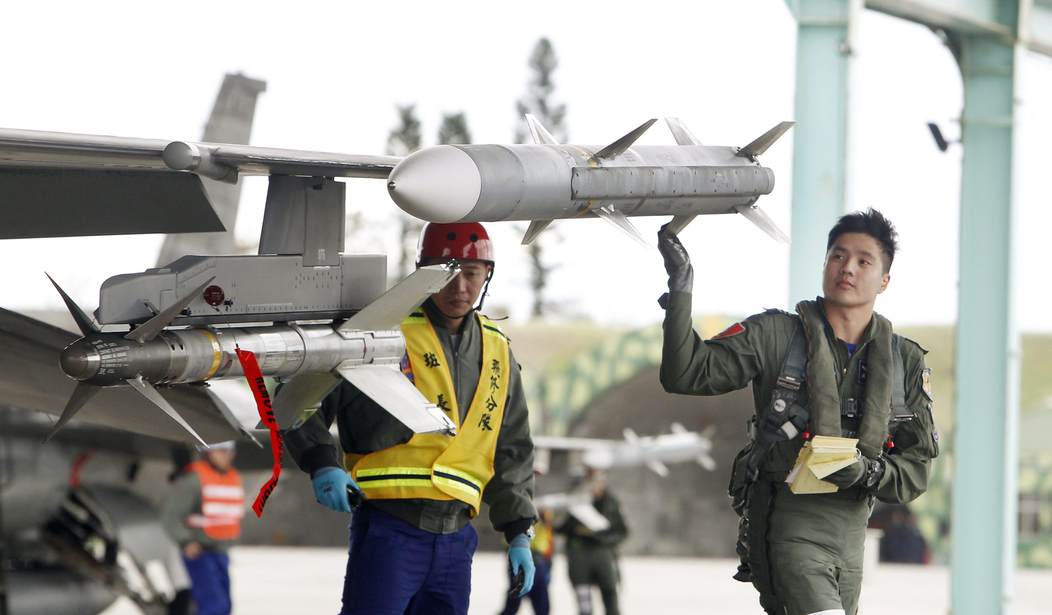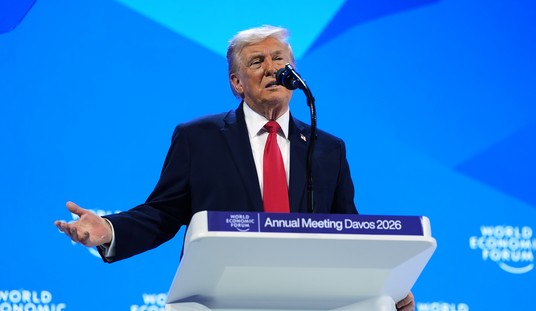WASHINGTON — Two GOP senators urged President Trump in a letter today to sell new F-35s to Taiwan “as a necessary deterrent to China’s aggressive military posture across the Asia-Pacific region.”
Trump began his presidency by taking a call from Taiwan’s president that infuriated China, but has drawn closer to the “very special man,” as he calls Chinese President Xi Jinping, throughout his term — his tariffs announcement last week notwithstanding.
The administration’s Taiwan policy has been hazy, prompting Congress to try to push Trump to support the island over the PRC.
Sens. John Cornyn (R-Texas) and Jim Inhofe (R-Okla.) wrote to Trump that the administration should “commit to providing new, U.S. made fighters to aid in Taiwan’s self-defense.”
“Since the early 1950s, the United States has promoted peace by ensuring that Taiwan has the means to defend itself. The 1979 Taiwan Relations Act (TRA), states that the US should ‘maintain the capacity of the United States to resist any resort to force or other forms of coercion that would jeopardize the security, or the social or economic system, of the people on Taiwan,’ which codifies the U.S. policy of robust support for Taiwan’s self-defense into law,” the senators noted.
“After years of military modernization, China shows the ability to wage war against Taiwan for the first time since the 1950s,” they added. “However, with your leadership, it is possible to help Taiwan remain a democracy, free to establish a relationship with China that is not driven by military coercion. Taiwan has a legitimate requirement to field a modern fighter fleet to address a myriad of defense contingencies. Therefore, Taiwan is requesting U.S. support in their procurement of the F-35B.”
The U.S. sold 150 F-16s to Taiwan in 1993, and the island currently has approximately 144 F-16 fighters in its inventory. Cornyn and Inhofe noted that “15 are in the U.S. for training, and an additional 24 will be offline on a rolling basis in their ongoing upgrade program that runs through 2023,” so “at a reasonable operational rate, Taiwan is likely able to field only 65 F-16s at any given time in defense of the island… not enough to maintain a credible defense.”
Taiwan President Tsai Ing-wen wants to buy the F-35B vertical take-off and landing aircraft to bolster Taiwan’s air defense.
“The survivability of the F-35B and modern long-range sensors could help Taiwan intercept Chinese missiles, promoting deterrence well into the next decade. The F-35B would not only provide a modern fifth-generation fighter, but would also bolster their capabilities in next-generation warfare,” the GOP senators wrote.
If Trump doesn’t want to sell Taiwan the F-35B, they stressed that he can “instead make available additional F-16Vs to address the quantitative and qualitative challenges confronting Taiwan’s fighter fleet.”
“Taiwan already fields the F-16, and this would represent a cost-effective solution to Taiwan’s legitimate defense requirement for additional fighters,” they noted.
Cornyn and Inhofe expressed concern that the degeneration of Taiwan’s air fleet “would be destabilizing and would encourage Chinese aggression to ensue” and could also “place an undue burden on forward-deployed U.S. forces in North East Asia.”
“Taiwan is rightly criticized for not investing enough in its own self-defense. However, we can make a significant impact on our longstanding commitment by partnering with Taiwan to provide replacement fighters that positively impact force modernization efforts,” they added.
The administration, the senators concluded, should “make a commitment at the earliest possible date to support the procurement of the F-35B or the F-16V for Taiwan’s air force.”
“These fighters will have a positive impact on Taiwan’s self-defense and would act as a necessary deterrent to China’s aggressive military posture across the Asia-Pacific region,” Inhofe and Cornyn wrote.









Join the conversation as a VIP Member